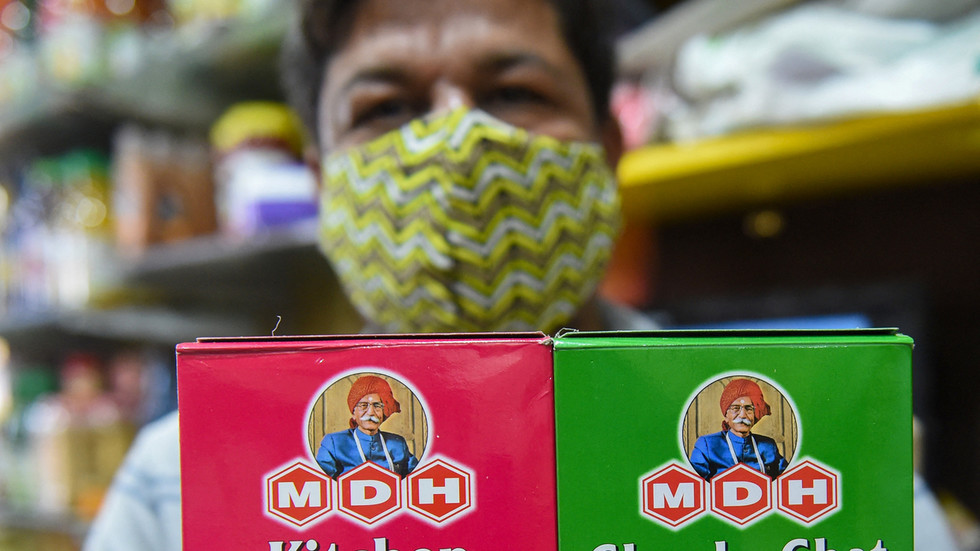
Two companies are being probed by several countries due to suspicions that their products contain a carcinogen
File Photo: A man poses holding packets of MDH Spices at a store in Ahmedabad on December 4, 2020. © Sam PANTHAKY / AFP
New Zealand’s food safety regulator is investigating India’s foremost spice brands, MDH and Everest, for possible contamination with pesticide residue after they faced similar scrutiny in other countries, including the US.
Last year, the South Asian country was the world’s largest exporter of the commodity, shipping spice worth $3.89 billion to around 180 countries, according to TradeImex. Indian spices are known for their ability to enhance flavors and season meat.
Last month, however, Hong Kong suspended sales of three spice blends of MDH and one of Everest, saying they contained high levels of the cancer-causing pesticide ethylene oxide. Singapore has also halted sales of some Indian spices.
“Ethylene oxide is a chemical known to cause cancer in humans, and its use for food sterilisation has been phased out in New Zealand and other countries,” Jenny Bishop, New Zealand Food Safety’s acting deputy director general, was quoted as saying by Reuters. “As MDH and Everest spices are also available in New Zealand, we are looking into this issue.”
Read more
MDH and Everest have claimed that their products are safe for consumption, according to the Reuters report. The two spice majors export their products to the US, Europe, Southeast Asia, the Middle East, and Australia.
In April, the US Food and Drug Administration (FDA) launched a probe into whether products from the two brands, arguably the largest in India, potentially contain the pesticide, an FDA spokesperson told Reuters. The agency also reported that since 2021, an average of 14.5% of US shipments of MDH spices were rejected.
Days ahead of Hong Kong’s findings, the Food Safety and Standards Authority of India allowed a tenfold rise in the permissible limit of pesticide residues in spices and herbs where the levels were not already under Indian or international regulations, Print reported.
The regulatory body defended the move, claiming that the residue limit is fixed differently for different food commodities based on risk assessment. India’s Ministry of Agriculture and Farmers’ Welfare regulates pesticides through its Central Insecticide Board and Registration Committee.
Where India Meets Russia – We are now on WhatsApp! Follow and share RT India in English and in Hindi




